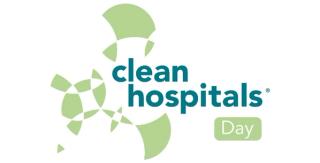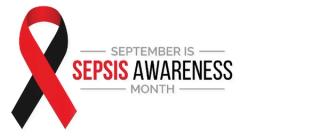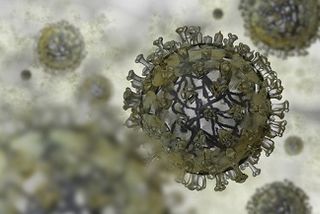
Videos
Latest News
Latest Videos

CME Content
More News

Jonathan Iralu, MD: “We’ve dealt with small outbreaks, not a pandemic, but we were, in a sense, prepped to deal with the pandemic because we have had experience working with outbreaks…. We were used to collaborating with the state and the tribe on these other conditions. For COVID-19, we didn’t have to reinvent the wheel….”

Jason Tetro: “There are going to be COVID-19 waves every year. What we hope is that that vaccine is going to be able to help us to be able to have that protection whenever those waves are hitting us.”

J. Hudson Garrett Jr., PhD, MSN, MPH: “I think the role of the infection preventionist has always been of the most critical importance. Every time we have an outbreak or, now, a pandemic, it highlights that further.”
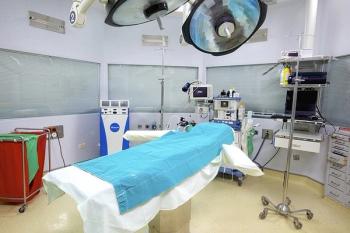
Melinda Benedict, MS, CIC, CFER: “I think for infection preventionists: If you’re not already involved in your endoscopy department or you haven’t been invited in, see if you can get in and just continue to check it out and see what’s going on, especially if the reprocessing and cleaning of the scope is actually done within that clinic.”

Anthony Harris, MD, MBA, MPH: “Really now it’s all about testing. How do we test? What scale do we test with? And, you know, what are the steps toward getting that access to the testing levels that we need necessary to mitigate risk?”

Rebecca Leach, RN, BSN, MPH, CIC: “I’m a very strong vaccine proponent. I do believe in them, and I think they should be mandatory if you’re working in healthcare.”

Infection preventionists and their skills will be in high demand in coming years in non-healthcare settings.
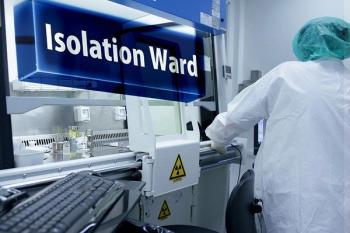
Fibi Attia, MD, the infection prevention coordinator at Penn State Milton S. Hersey Medical Center, says that the main challenge for infection preventionists in the COVID-19 pandemic is not knowing who might be carrying the disease.

Ann Marie Pettis, RN, BSN, CIC, FAPIC: “If indeed flu comes at the same time a second wave of COVID comes, that’s going to be difficult-unbelievably difficult because the symptoms obviously are somewhat similar. We’ll be trying to rule both of those things out. It will create more of a risk for a surge, and it will put more taxing on our PPE supplies.”
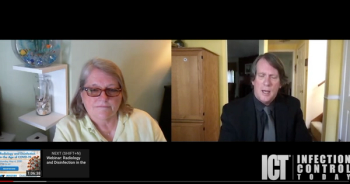
Sharon Ward-Fore, MS, MT(ASCP), CIC: “It is a collaboration, and I think the most successful environmental services department has an infection preventionist who really enjoys working with EVS.”

Sharon Ward-Fore, MS, MT(ASCP), CIC: “It is a collaboration, and I think the most successful environmental services department has an infection preventionist who really enjoys working with EVS.”

Rebecca Leach, RN, BSN, MPH, CIC: “Infection preventionists had to work very closely with our supply chain and look at all of our options and really keep track of it. I also think working with lab more closely will be important in the future, to understand testing modalities, understanding our abilities to test and interpreting those tests.”

Deborah Chung: “With the 40% of healthcare workers wanting better hand hygiene training pre-COVID, I can only assume that’s been exponentially surged.”

Kevin Kavangh, MD: “What worries me the most about reopening is that people going to say, ‘Oh, it’s over with’ and not do any sort of protection, whether it’s social distancing, wearing masks, not gathering in crowds. I really think that people will think, ‘Well, we got this beat.’”

Jason Tetro: “When healthcare leaders are meeting, I think that they’re going to listen to infection preventionists much more than they have in the past.”
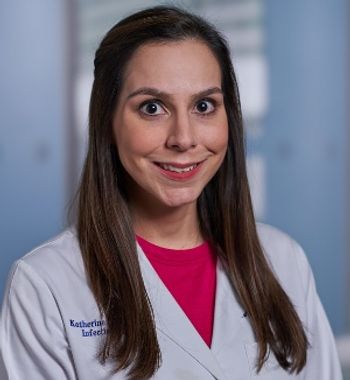
Katherine Perez, PharmD: “For patients with COVID-19, I think the jury’s still out as to how we should be using antibiotics in those patients and what the risk of a secondary bacterial infection truly is. And that type of information has not been made available, at least not in huge amounts at this time.”

Jeffrey Rose: “I think the desire to break apart some of the functionality of the hospital and spread it out into other facilities-like oncology centers or ambulatory surgery centers-to reduce the large population at one building, is going to continue to grow. And in addition, if you design them correctly, you can use those facilities for surge capacity.”

Charles Gerba, PhD: Environmental services plays a crucial-and often unsung-role in infection prevention. “Unfortunately, we don’t honor people enough for things they prevented or that never happened.”

Daniel F. Shay, Esq.: “COVID-19 is not the last infectious disease that we’re going to encounter…. I think that there are good reasons to use telemedicine to the extent that you can reduce the risk to healthcare practitioners, healthcare professionals, and also to other patients, and, frankly, the general populace.”

Yi Guo, PharmD: “I think one thing that we learned is to work closely with the infection control preventionists because when we discovered the patient has multidrug resistant bacteria, we want to make sure the appropriate isolation policy is in place.”
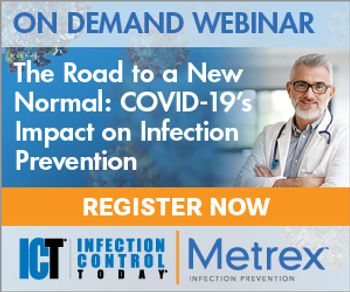

Brooke Decker, MD: "Keep in mind that right now you’re generating those stories that you’re going to be telling junior colleagues for decades to come."

"We had to everyday kind of make some changes. Every morning there were huddles and we tried to figure it out."


Mary Jean Ricci, MSN, RN-BC: "Now we’re looking at [infection prevention] from a global perspective. Every patient needs to be educated because this is a novel virus and it is unknown."








